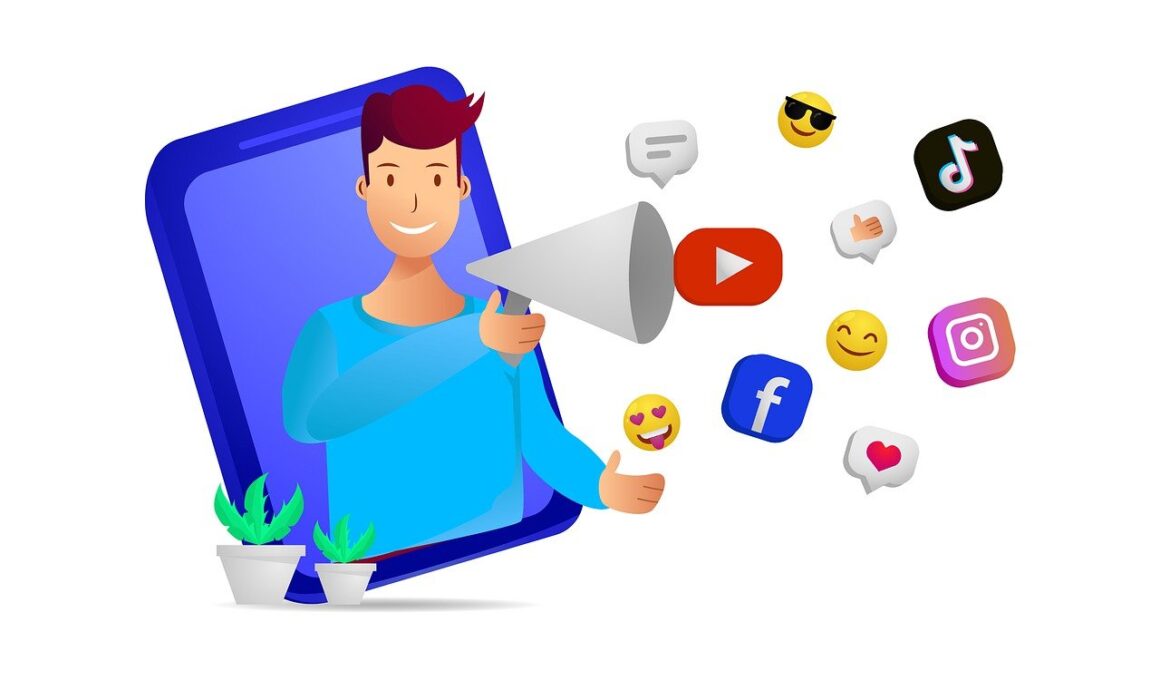Real-life Examples of Influencer Collaboration Software Impact
Influencer collaboration software has drastically redefined marketing strategies for brands of all sizes. These platforms streamline the collaboration process, making it simpler to manage relationships with influencers. By employing software, brands can efficiently track campaign progress, analyze audience engagement, and quantify ROI. For instance, a major beauty brand used collaboration software to connect with micro-influencers. This strategy not only increased their reach but also drove consumer trust and credibility. The influencers shared authentic content that resonated with their followers. As a result, the brand saw a 300% increase in online engagement. Additionally, the software provided the necessary tools to measure success, allowing marketers to pivot their strategies if engagement dropped. Features like performance dashboards and analytics tools help teams analyze which influencers are yielding the best results. This data-driven approach ensures brands can maximize their investments while collaborating with key opinion leaders, leading to better targeting and messaging across channels. Overall, software tools revolutionize influencer marketing, paving the way for successful campaigns that deliver measurable results.
Another notable example of influencer collaboration software impact involves a fashion retailer’s holiday campaign. By utilizing a specialized platform, they identified promising influencers and launched a series of partnership initiatives. The software enabled them to create cohesive campaigns that echoed throughout different social media channels. Influencers engaged in giveaway contests and styled outfits featuring the retailer’s products, which boosted visibility significantly. The software’s tracking capabilities allowed the team to monitor engagements across multiple platforms, leading to insightful analyses on consumer behavior. Within just a few weeks, sales increased by 120%, showcasing the power of strategic influencer partnerships. Moreover, the use of the software simplified the compensation process, ensuring influencers were paid timely based on their campaign performance. The result? A satisfied influencer community eager to work with the brand again. Bridging genuine connections between the retailer and influencers fostered authentic storytelling, amplifying brand messaging. Such success stories illustrate how leveraging technology in influencer partnerships is not just innovative, but essential. Brands looking to scale must incorporate these innovative software solutions into their marketing runways.
Enhanced Collaboration and Efficiency
Collaboration in influencer marketing often involves a wide range of tasks, from liaising with brand representatives to aligning on goals. Influencer collaboration software enhances efficiency by centralizing communication. Instead of juggling emails and messages across different platforms, marketers can manage everything within one interface. This unity improves workflow, as teams can quickly reply to influencers and share relevant materials in real-time. A tech startup adopted such software for their campaign launch, allowing for seamless communication between their team and influencers. This approach helped streamline their outreach, resulting in a 50% faster response time from influencers. The analytics dashboard also kept the team informed about influencer performance, which was crucial for optimizing strategies on-the-go. They could easily identify high-performing posts and engage further with those influencers. Moreover, the ability to set reminders, track milestones, and adjust campaigns based on feedback allowed them to act promptly. By reducing friction in communications and planning, businesses can focus on creativity and strategy, making the overall campaign experience more effective and rewarding for all parties involved.
The impact of influencer collaboration software extends beyond mere efficiency; it also enables personalized campaigns. Personalization is key in today’s marketing landscape, as consumers crave authentic interaction. A well-known electronics brand saw this firsthand when they utilized collaboration software to tailor campaigns based on influencer personas. By analyzing data, the brand pinpointed which influencers resonated with different audience segments. This allowed them to craft specific campaign messages, ensuring relevance and engagement. The results indicated that personalized strategies yielded 80% more interaction compared to generic approaches. Influencers were excited to showcase products that aligned with their style and values, leading to authentic content creation. Additionally, the software provided insights into influencer demographics, helping the brand select ambassadors that authentically represented their products. As influencers showcased features in relatable contexts, it made potential customers feel more connected. The relationship between the brand and influencers strengthened, leading to renewed partnerships beyond a single campaign. This individualized approach demonstrates that not only is influencer marketing possible at scale, but it can also be meaningful and impactful, leading to genuine consumer relationships.
Comprehensive Monitoring of Campaigns
Monitoring the progress of influencer campaigns can be challenging. That’s where influencer collaboration software excels, offering comprehensive monitoring capabilities. A notable beverage company used such software during their product launch to track influencer engagements across numerous platforms, including Instagram and YouTube. With monitoring tools in place, they could accurately measure conversions and engagements in real-time. The software provided a centralized view of campaign performance, allowing teams to adjust strategies based on immediate feedback. As a result, the beverage company experienced a significant uptick in website traffic and sales. Tracking tools also highlighted which influencers were most impactful, ensuring future partnerships were data-backed. Without these tools, much of the campaign’s success may have remained unknown to the brand. Additionally, brands could assess whether campaigns were meeting goals based on data-driven insights, helping them adapt to consumer preferences on-the-fly. This level of insight ultimately empowers brands to optimize their marketing budget, ensuring funds are allocated towards effective influencer partnerships. Campaign monitoring’s importance in the larger marketing strategy cannot be overemphasized.
Furthermore, influencer collaboration software fosters a sense of community among brands and influencers. By creating a shared platform for dialogue, feedback, and collaboration, mutual interests can be purely pursued. A popular food brand implemented software to engage food bloggers in their recipe promotion initiatives. The platform allowed influencers to share their creative ideas while enabling the brand to give feedback on proposed content. This synergy led to authentic brand messaging that matched the company’s ethos. As a result, many tasty recipes showcased the brand’s products in captivating ways, increasing organic search visibility two-fold. Influencers became brand advocates in their own rights, ensuring their followers received consistent, engaging messages. Collectively, they not only reached a wider audience but also cultivated strong relationships with the brand over time. This community-building aspect distinguishes collaboration software amongst traditional marketing strategies. Ultimately, it points to the evolution of marketing paradigms, where authentic partnerships take precedence over transactional engagements. Community-driven influencer relationships help brands convey messages with sincerity, leading to better consumer trust and loyalty.
Final Thoughts on Influencer Collaboration
In conclusion, the effectiveness of influencer collaboration software is undeniable. As brands navigate increasingly complex marketing landscapes, utilizing today’s technological innovations is crucial. Real-life examples demonstrate that companies achieving measurable success engage influencers strategically and build genuine partnerships. From heightened communication efficiency to personalized campaigns and community-building, the benefits are multifold. Through collaboration software, businesses can gain insights, streamline processes, and optimize influencer partnerships based on valuable data. In an environment where authenticity is vital, vendors focusing on fostering meaningful influencer relationships will stand out in the crowded marketplace. As influencers continue to play an integral role in brand storytelling, collaboration software will remain a critical asset in shaping future marketing strategies. Companies that invest in these tools will find themselves at the forefront of innovative marketing landscapes, able to meet evolving consumer preferences. Their agility and connectivity with influencers will pave the way for successful campaigns that resonate powerfully across their target audiences. Ultimately, the fusion of technology and creativity leads to impactful storytelling that drives engagement and meaningful results for brands in today’s competitive environment.
The journey through influencer collaborations is expansive and endlessly creative. For brands aiming to make a mark in their industries, realizing the disruptive potential of influencer collaboration software is just the beginning. As businesses embrace partnerships with influencers, adopting software solutions is essential for realizing full potential. Effective collaboration ensures brands bring stories to life through voices audiences trust. As the landscape continues to change, brands possessing this understanding will thrive. They will shape their narratives and drive consumer decisions through authentic influencer partnerships. In today’s fast-paced marketing world, employing these tools is vital. Brands must remain on top of trends, maintain solid relationships, and ensure they constantly innovate. Thus, influencer collaboration software isn’t merely an option; it has become a necessity for modern strategies. This shift signifies a move toward integrated marketing approaches, emphasizing collaboration over competition. For many brands, these collaborative strategies are opening doors that lead to fresh ideas and approaches. The goal is clear: leverage the power of influencers to build genuine connections, provide value to consumers, and pave the way for future success.


